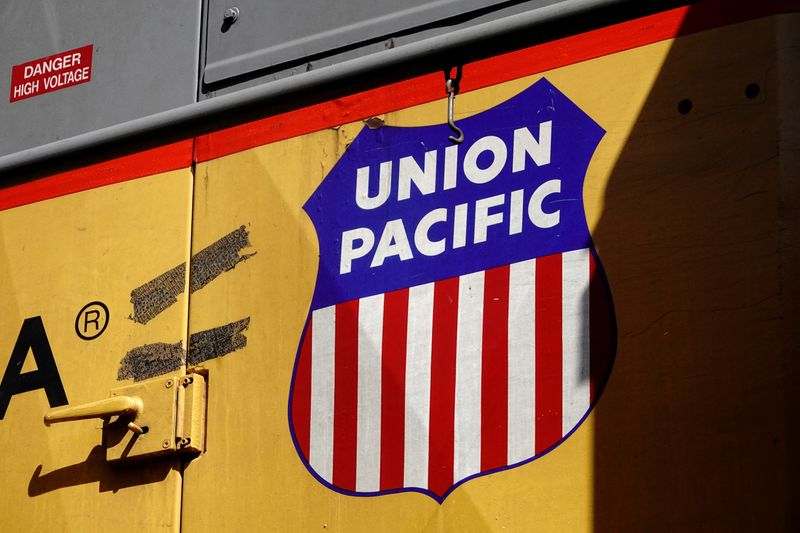Mexico’s main farm lobby flags huge bridge closure impact
2023.12.20 00:22

© Reuters. FILE PHOTO: Union Pacific livery on the side of a cargo locomotive is pictured ahead of a possible strike if there is no deal with the rail worker unions, at Union Station in Los Angeles, California, U.S., September 15, 2022. REUTERS/Bing Guan
MEXICO CITY (Reuters) -The prolonged closure of two major U.S.-Mexico rail bridges vital to cross-border trade worth billions of dollars will cause “huge losses,” top Mexican farm lobby CNA has warned.
In a statement late on Tuesday, the CNA said inventories of yellow corn and soymeal, both crucial for Mexico’s massive livestock sector, were running low, putting at risk exports of beef and pork.
Mexican soymeal supplies range from just 3-8 days, while yellow corn 8-20 days, according to the lobby.
“The flow of goods and supply of inputs (are) essential to feeding the livestock sector and industrial uses,” it said.
Earlier on Tuesday, major rail freight operator Union Pacific Corp (NYSE:) said the two key border bridges connecting El Paso, Texas with Ciudad Juarez, Mexico and Eagle Pass, Texas with Piedras Negras, Mexico account for about 45% of its cross-border shipments.
The bridges were closed on Dec. 18 by U.S. border officials amid a surge in crossings by illegal migrants.
The railroad operator estimates that the overall economic impact of the closures will be more than $200 million per day.
Union Pacific added it was working to prevent congestion at the border, stressing it will be more difficult for cross-border trade to resume the longer the bridge closures remain in effect.
On Monday, Mexico’s main poultry producers association issued a similar warning.
Union Pacific said it is working closely with multiple government agencies to reopen the two border crossings.
Earlier this week, Union Pacific flagged that its other locations cannot handle the extra traffic.
In September, about 8,000 trailers carrying goods worth $1 billion were stranded on the U.S.-Mexican border after authorities shut down crossings and imposed extra security checks amid a similar rise in migration.








